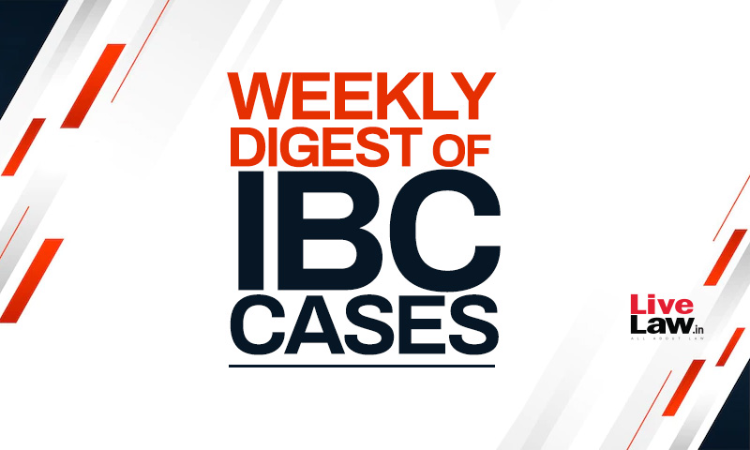IBC Cases Weekly Round Up: May 9 To May 15, 2022
Pallavi Mishra
16 May 2022 6:30 PM IST
SUPREME COURT 1. Supreme Court Issues Notice On Meru Cab's Plea Alleging Anti-Competitive Practices By Ola Case Title: Meru Travels Solutions Pvt. Ltd. v Competition Commission of India Case No.: Civil Appeal No.2843-2844/2022 The Supreme Court Bench comprising of Justices L. Nageswara Rao and B.R. Gavai has issued notice in the appeal filed by Meru Cab, challenging the...
Next Story



